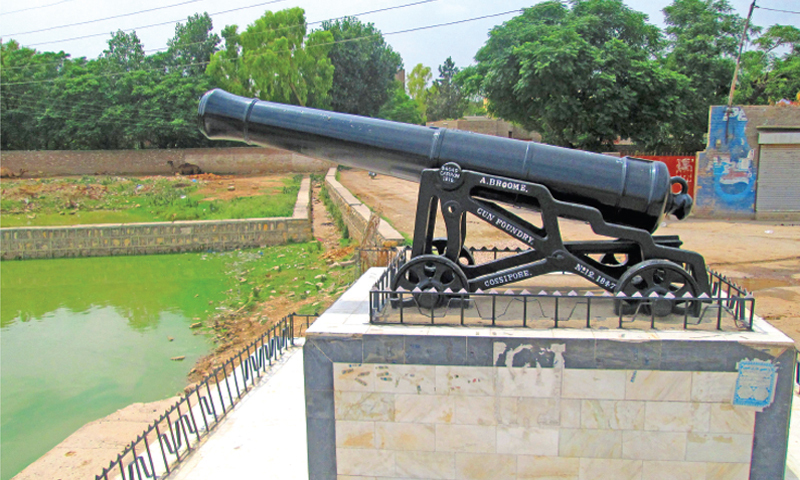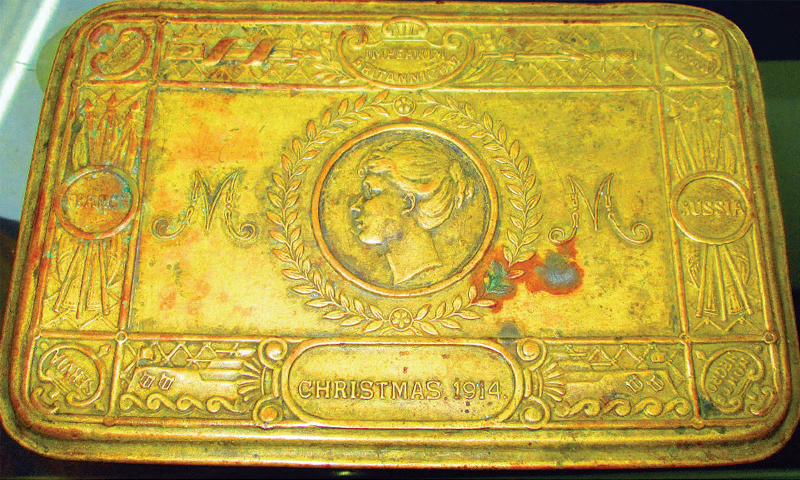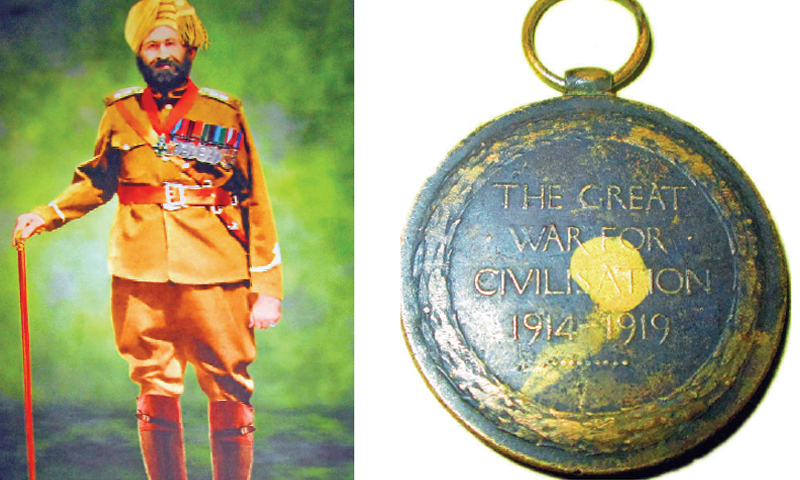Maj.Osmani
BANNED

- Joined
- May 28, 2016
- Messages
- 585
- Reaction score
- 1
- Country
- Location

As the British government is busy conducting ceremonies for the ‘First World War Centenary Programme’, relatives of the First World War veterans in a Pakistani village feel snubbed.
“I fail to understand why the British government has overlooked those brave men of my village who fought for them in the First World War (WWI),” groans Riaz Ahmed Malik, whose father Subidar Muhammad Khan participated in both, the first and the second, World Wars.
Malik is a resident of Dulmial, a sleepy village in the fascinating Kahoon Valley in Chakwal District. His complaint is understandable, since in a recent ceremony in London, the British government only honoured the 175 recipients of Victoria Cross, UK’s highest military honour, conveniently forgetting Dulmial, which alone sent 460 soldiers in WWI, making it the largest single participation from any village in Asia. Nine of these soldiers lost their lives.
In WWII, the village sent 732 soldiers, 36 of them laid their lives while fighting for the British government.
Being a martial area, 120,000 soldiers were recruited from the Potohar region alone, while 1.2 million Indian troops participated in the war, which is usually termed as the “great war for civilisation”.
As one steps into Dulmial village, they are greeted by a canon, installed at a marble stage, on the right bank of the village pond. This canon was awarded to those 460 soldiers of the village who displayed their bravery while fighting for the British government in WWI. Dulmial was the only village in Asia to receive this award, while another village in Europe shared this award. The plaque installed at the site lauds the efforts of those 460 soldiers.
The gun was collected by Capt Ghulam Muhammad Malik, the senior-most officer from the village.
It is an honour for the village, states Riaz Ahmed Malik, the village welfare organisation president, citing that Field Marshal Birdwood, the Royal Indian Army Chief and Viceroy of India Lord Wellington visited this village and saluted this gun. Later, Pakistani Army Chiefs like General Musa Khan, General Tikka Khan, General Sarwar Khan and two former governors of Punjab, Lt Gen Mohammad Safdar Malik and Mustafa Khar, also saluted this canon.

A box awarded to a soldier of the village by the British government as a Charismas gift.
Despite the sole recipient of canon, it seems as if the authorities in London overlooked Dulmial, as they are only sending three bronze memorial plaques bearing names of the three Victoria Cross holders, who belong to the present-day Pakistan – Sepoy Khudadad Khan of Chakwal’s Dub village, Jemadar Mir Dast from Tirah and Naik Shahamad Khan from Rawalpindi.
“We were expecting that the British government would remember our village, but they just ignored it,” says Malik.
Malik, who has also authored books regarding the historical sites of the area including the famous Katas Raj Temple Complex, says that this village was founded by Dolmi, a general in Shahabuddin Ghauri’s Army, who invaded this area in the last decade of the 12th century.
As Dulmial was founded by a warrior, the village has been producing armymen since its inception. During the British Raj, more than 100 men were selected as Viceroy Commissioned Officers from this village. After the partition of India, Dulmial has given five Lt Generals and 23 brigadiers to Pakistan Army, along with many other junior officers.
“Till recent times, whenever a baby boy was born in the village, it was said that another lieutenant has been born,” Malik explains wittingly, adding, “Whenever a person from our village became a Civil Services of Pakistan (CSP) officer, nobody congratulated him, as only a lieutenant was considered an officer in our village.”

Capt Ghulam Muhammad Malik who brought the cannon to the village. & A medal awarded to a soldier for participating in World War I.
Besides Dulmial, the other 11 villages of Kahoon Valley are also known as the villages of army officers. The secret behind producing so many army officers is not only the martial traditions of this area, but another important aspect is that this area got a missionary high school in 1900, when even the bigger cities did not have one.
“Recognising the importance of our area, the British government set up a missionary high school in 1900, which not only produces dozen of army officers, but is still producing brilliant men,” Malik said.
Another positive and heartening aspect of Dulmial is that half of its population is based on Ahmedi community that is living peacefully in the village.
Malik, who is a passionate collector of old relics, has medals awarded to the brave soldiers of this village, along with a collection of old coins.
“It is very discouraging for us that the plaque telling the brief description of the canon does not carry the names of all the soldiers of the village. It only has Capt Ghulam Muhammad Malik’s name,” said Riaz Ahmed Malik.
“There should be a monument in the village, and the villagers want the monument’s foundation stone to be laid by the British Queen herself.”
Lack of a well-equipped hospital and a higher education institution are among the other major problems of this area as it is located 40km away from Chakwal city. “We have to suffer a lot whenever a person needs emergency medical care, as the building of the health unit has dilapidated over time, due to the negligence of the authorities,” says Malik.
“We also badly need a higher educational institute,” says Basil Ahmed Malik, as student of Bachelors.
Dawn.com





 ;
;
